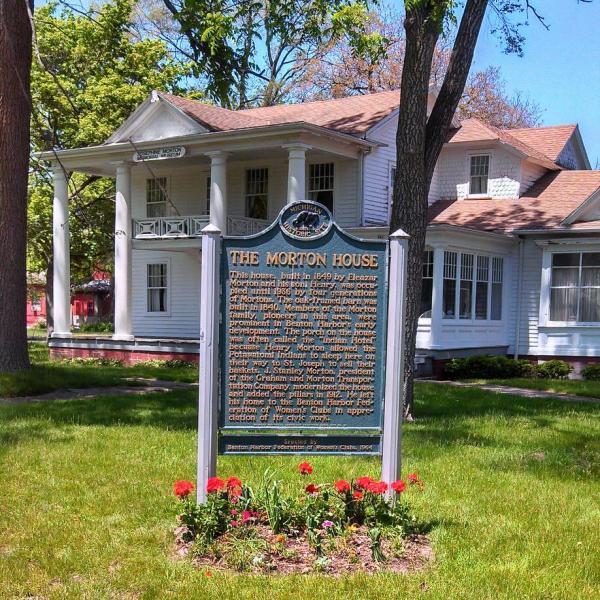
Morton House Museum
Morton House Museum
Mission
The mission of the Morton House Museum is to be “The Home of Benton Harbor History.” As part of the revitalization of Benton Harbor, we share the remarkable story of the city from its beginning until today. The Morton House Museum is a center of history for Benton Harbor residents, and also those outside the city who are interested in and care about Benton Harbor.
Background
The oldest building in Benton Harbor, the Morton House was built in 1849 by pioneer Eleazar Morton and his son Henry Morton, one of the founders of the city of Benton Harbor. The family continued to be well known in the city and involved with its growth and prosperity.
J. Stanley Morton, son of Henry Morton, helped facilitate the area’s steamboat industry, owning many vessels that ran from Benton Harbor to Chicago and back. The Mortons were also known as large real estate holders in the area. Stanley Morton also held many different local official posts in the area. He enhanced and modernized the house in 1912.
The Morton family continued to live in the house until J.S. Morton’s death in 1936. Stanley deeded the house to the Federation of Women’s Clubs, which used it as a clubhouse and started a house museum in the early 1960s. The Morton House Museum board now runs the museum as “The Home of Benton Harbor History.”
The Morton House is a fine example of Queen Anne-style architecture with a variety of ornate details, which was popular in the late 19th century. The interior of the house is equally impressive, with rich wood paneling, stained glass windows, and other decorative elements. Today, the Morton House is open to the public as a museum, and visitors can tour the beautifully restored interior and learn about the history of the Morton family and the Benton Harbor community. With the mission to be "The Home of Benton Harbor History," the museum features a variety of exhibits and displays that explore different aspects of local history, including the early settlement of the area, the growth of the local economy, and the contributions of Benton Harbor's African American community. You can even read the journals where the family kept daily weather entries!






